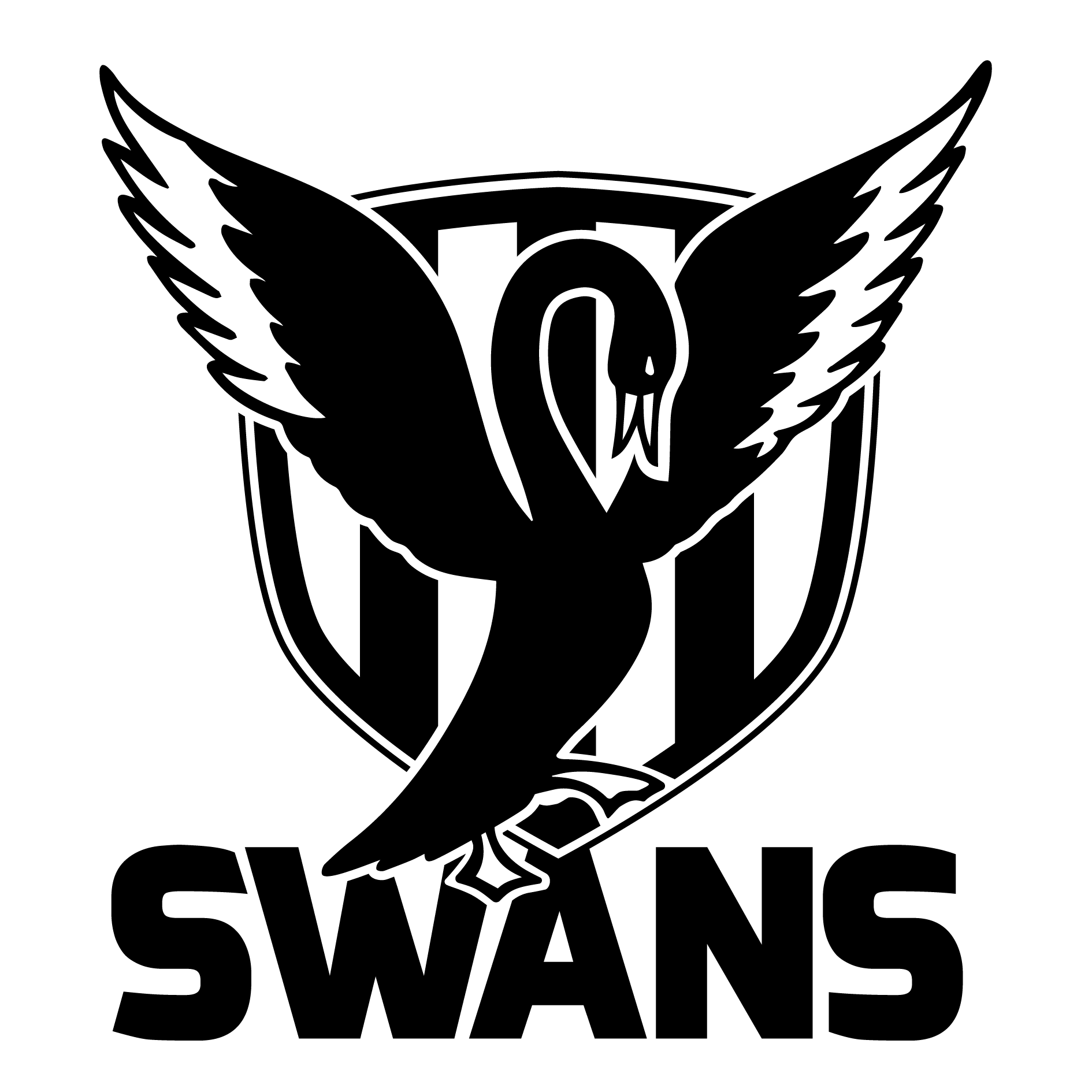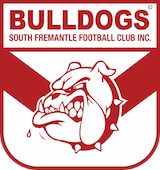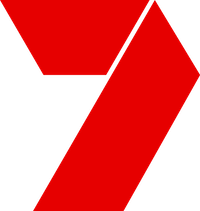Select grade below
- Round 1Sat Mar 3014:30
 21.11.137VS
21.11.137VS 10.13.73
View Stats
10.13.73
View Stats - Round 2Sat Apr 0614:30
 18.11.119VS
18.11.119VS 11.16.82
View Stats
11.16.82
View Stats - Round 3Sat Apr 1316:10
 9.12.66VS
9.12.66VS 9.9.63
View Stats
9.9.63
View Stats - Round 6Sat May 0414:30
 VS
VS
 Revo Fitness Stadium
Revo Fitness Stadium - Round 7Sat May 1114:10
 VS
VS
 Steel Blue Oval
Steel Blue Oval - Round 8Sat May 2514:30
 VS
VS
 Steel Blue Oval
Steel Blue Oval - Round 9Sat Jun 0114:30
 VS
VS
 Sullivan Logistics Stadium
Sullivan Logistics Stadium - Round 10BYE

- Round 11Sat Jun 1514:30
 VS
VS
 Steel Blue Oval
Steel Blue Oval - Round 12Sat Jun 2214:10
 VS
VS
 Steel Blue Oval
Steel Blue Oval - Round 13Sun Jun 3013:10
 VS
VS
 Steel Blue Oval
Steel Blue Oval - Round 14Sat Jul 0616:10
 VS
VS
 Pentanet Stadium
Pentanet Stadium - Round 15Sat Jul 1314:30
 VS
VS
 Steel Blue Oval
Steel Blue Oval - Round 16BYE

- Round 17Sat Jul 2714:30
 VS
VS
 Fremantle Community Bank Oval
Fremantle Community Bank Oval - Round 18Sat Aug 0314:30
 VS
VS
 Steel Blue Oval
Steel Blue Oval - Round 19Sat Aug 1014:30
 VS
VS
 East Fremantle Oval
East Fremantle Oval - Round 20Sat Aug 1714:30
 VS
VS
 Lane Group Stadium
Lane Group Stadium - Round 21Sat Aug 2414:30
 VS
VS
 Steel Blue Oval
Steel Blue Oval
Indy And The Temple Of The Property Room

It’s quite fitting Swans’ Chief Property Steward, Allan Hickling, was selected for Optus Club Hero of the Week given his nickname is ‘Indy’ - short for Indiana Jones.
“I’d say 90% of the people at the club don’t know my real name,” Hickling said with a laugh. “It came from our current president. On the first night I started at Swans, he came up to the door and said ‘you look like Indiana Jones’ … and it’s just been Indy ever since”.
The Optus Club Hero of the Week award is presented to individuals who have gone above and beyond to make their local football club a better place. Each hero is announced during the WAFL Optus Half Time show.
Hickling was named club hero and honoured with a video tribute during the recent WA Day broadcast of the Swans vs. Perth match. However, it wasn’t his nickname or Harrison Ford-like looks that earned him the title. It was given in recognition of the 30 years Hickling has presided over the property room, attiring Swan Districts’ players for their home games on a voluntary basis. Each match day, Hickling arrives at Steel Blue Oval at 7am and allocates football kits around the clock. He doesn’t leave until every uniform has been returned and accounted for, a process that usually takes until 7pm. Despite the lengthy workday that would tax even someone half his age, Hickling (60) always maintains his cheerful nature, positivity and sense of humour. Traits the newer, younger and often visibly nervous recruits especially appreciate.
“We pride ourselves in the property room on always putting a smile on their faces. We try to have a bit of a laugh with them before things get serious prior to the match start,” Hickling said.
Having issued Colts players their uniforms for three decades, Hickling naturally feels a special bond with the team.
“I have off-siders that help me with the Reserves so I can watch the Colts play,” he said. “I just love seeing young kids come through … players like Nic Naitanui, (who debuted with Swan Districts in 2008 before being drafted by West Coast and making his AFL debut in 2009) and Alex Rance (drafted from Swan Districts to play for Richmond) - guys playing AFL at the moment and think, ‘I had a little bit of a part in their progress through the ranks’. I got to know them when they were young kids and it’s great to see them go on to have fantastic AFL careers”.
Not only has Hickling watched generations of players evolve during his years of overseeing the property section, he’s witnessed the club undergo significant changes also. He claims the biggest transformation was the number of women entering football.
“Not necessarily playing, coming into the training side of things,” said Hickling. “When I first started, the only female allowed into the room was the nurse and it was like that all the way through the 90s. Now it’s the norm. There are more females on match days around the rooms than there are males”.
The normalisation of female presence at the club and the acceptance of a culture of equal opportunity employment with the hiring of women physiotherapists, trainers and players, highlights Swan Districts’ willingness to be a progressive organisation throughout its history. Facilitating inclusion for all community members irrespective of race, gender or ability continues to be a priority for the club today.
In their 2018 strategic plan, the Swan Districts states key objectives which include fostering community connectedness and improving the overall wellbeing of its family - which comprises the club’s staff, players, management, coaches, members, supporters and the entire Swan Community. No one understands this better than Hickling.
“The Swans are my family and has been ever since I can remember. My dad (Jack Hickling) was a trainer for 49 years and growing up, all the players used to come over to our house,” he reminisced wistfully. My mother and father took me to every match too.”
“The day my father passed away, it was the last game of the season in 2003.
He’d been ill for a long time and we all knew it was coming but he passed away at 7am … I was having breakfast at the time. I went to the club and told the President and the football manager. Just the way the whole club reacted to it on the day. It was the worst day of my life and the best day of my life. They made it so the whole game was about dad.”
“We weren’t a very good team that year. We weren’t going to make finals and we were playing a team that were … but the players went out there and played their hearts out and won the game. All of them had written on their wrists ‘do it for Jack’ and the club did a banner. Yeah it was a great day but a horrible day,” Hickling shared.
“I was in the place I should have been that day, because it was dad’s life and it’s my life. The football - that’s where I had to be.”
The Club Hero of the Week award was established by Optus as a vehicle to recognise the great sacrifices people make to keep Western Australian football thriving and to thank staff of local football clubs for their invaluable contributions.
Hickling has clearly sacrificed a lot – from the countless hours spent attiring players to the ones lost, unspent by his father’s bedside during his final hours on earth.
Not a single person would dispute that Indy’s contributions are unparalleled and so deserving of the hero mantle.
Actually there is one …
"No matter how much I've done for the club, the club has given me more," Hickling said resolutely.



 8.5.53
8.5.53










